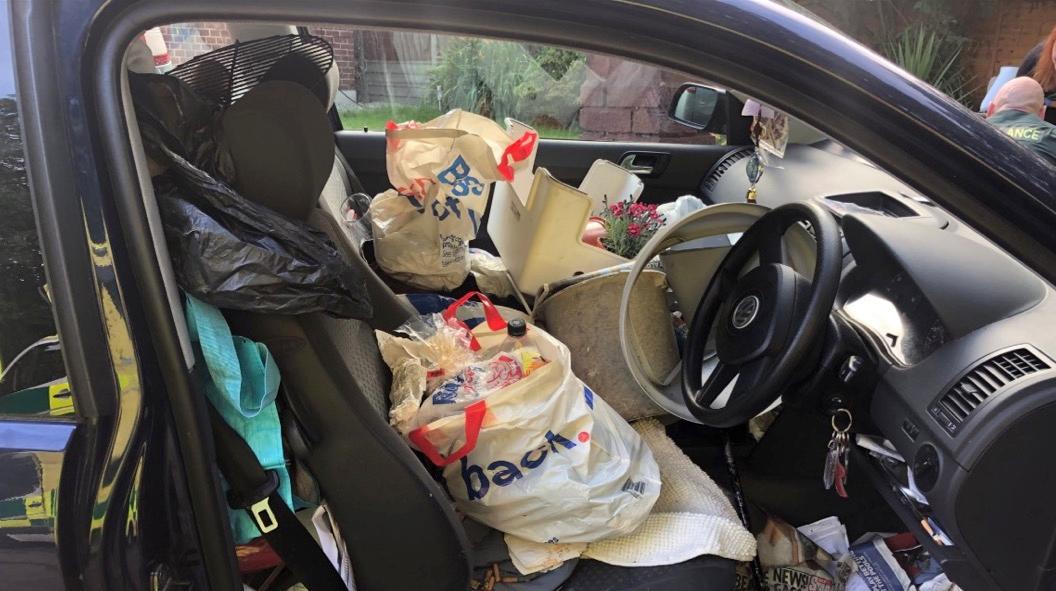Britain’s “messiest car” was involved in a crash after the driver couldn’t deploy the handbrake because it was blocked by a mountain of rubbish.
Hampshire Police’s road team published a photograph of the car on Twitter on June 26 following the incident, adding that the driver “couldn’t get the hand brake on and rolled back into a parked vehicle.”





